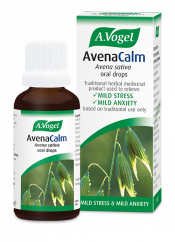What is a night-time anxiety attack?
People suffering from night-time anxiety attacks tend to get an anxious rush just as they are dropping off to sleep, or wake with a jolt in the middle of the night.
Anxiety attacks are frightening at the best of times but, when they occur unexpectedly in the silence and darkness of night time, they can be particularly hard to endure.
What causes anxiety attacks at night?
Nighttime anxiety or panic attacks, like their day time cohorts, result from the 'fight or flight' instinct being triggered by a perceived aggressor. In this case, the aggressor is likely to be mental angst resulting from pent-up worries.
In the business of daily life, these anxieties recede into the background, but then rear their monstrous heads at night when all distractions disappear. In the stillness of the night, there is no running away and anxieties can build, sometimes resulting in an anxiety attack.
We also know that the brain does not fully switch off when we are asleep. How often does an event that occurred during the day lead to an odd dream during the night? Our brain naturally tries to process and sort out the day's events and if these have been stressful then our dreams may well provoke anxiety too.
If you think that you are not going to be able to fall asleep, then it is quite likely that you will have a battle on your hands. Try to follow some good sleep tips to switch off and give your brain a rest.
What can I do to stop anxiety attacks at night?
It is possible to learn how to rationally identify and accept an anxiety attack, and allow the fear to pass. With the help of sensible tools and techniques, anxiety attacks can also diminish in severity and frequency.
1. Focus on breath
Trying to fight a night time panic attack will only make it worse, so try to slow down, breathe deeply and relax your muscles. Focusing on breath will help to calm the stress response and gain back some control over the situation.
Whether you are lying down or sitting, breathe deeply in through your nose and out through your mouth. If you are breathing correctly, your abdomen (not just your chest) will be rising on an in-breath and falling on an out-breath.
If you have an app like Spotify or Apple Music, there are lots of guided meditations (such as one called Mindful Meditations) that focus on deep breathing. If you are able to keep one of these to hand, try switching it on when you are feeling panicky.
You could also read up on our breathing exercises to help you sleep. This will help you become more prepared to act when anxiety, sleeplessness, or both, occur.
2. Practise a calming activity
During and after a panic attack there will be adrenaline pumping through your body so, to calm this response, it can help to get up and do something.
Simple activities like reading, a bit of gentle yoga, colouring in or knitting are ideal. Even just getting up to make a cup of herbal tea will give your mind something else to focus on. A gentle activity like stretching may also help to burn off the adrenaline.
3. Think of positive images
Try thinking of positive things during a panic attack. This could be a list of your favourite songs, foods or animals. For example, start at the beginning of the alphabet, naming a place beginning with each letter, and work your way along from A to Z.
If you can, another idea is to get a notebook and write down a 'page full of positive things'. Put down all the things you love (hobbies, sports, people, movies) until the page is full up.
4. Focus on your senses
Turn your attention to what's around you – a soft cushion or fluffy carpet, for example. Taste may also offer a distraction. Try having a mint or make yourself a cup of caffeine-free tea. Chamomile, in particular, is known for its relaxing properties.
5. Talk
If there are others in the house, do not be afraid to wake them up to let them know what's going on. They will likely be a reassuring, positive presence to help you get through the panic attack.
If you are alone, there are many 24-hour helplines you can contact for support in getting through your panic attack. Samaritans and Mind are just two options here in the UK.
6. Consider herbal remedies
Many people look straight to conventional sleeping tablets or anti-anxiety medications to counter the effects of nocturnal anxiety attacks. However, it is a good idea to first try the lifestyle tips outlined above to help you control the symptoms naturally. If you manage to control your symptoms this way, the results will be the most effective and long-lasting, with the fewest side effects.
Along with the tips outlined above, herbs can lend a helping hand. Herbal remedies are natural, so support good lifestyle techniques without the side effects associated with some conventional medication.
Avena sativa, also known as oats, has traditionally been used in relieving mild stress and anxiety in order to induce sleep. Fresh extracts of this herb are available in the licensed herbal remedy A.Vogel AvenaCalm Avena sativa oral drops.
Another option, St John's Wort Hyperiforce, helps to support slightly low mood and mild anxiety. Just be aware that there are many medications that this particular remedy cannot be taken alongside. Please consult the patient information leaflet for more guidance.
7. Create a sleep routine
Try to establish a night time routine to improve sleep quality, as well as your ability to fall asleep in the first place. This may reduce the likelihood of experiencing anxieties during night time hours.
So, aim to go to bed around the same time each night and get up at a regular time as well. It's also a good idea to head to bed at a time that will allow you to get 7-9 hours of sleep.
For more tips on creating a good sleep routine, check out our blog on the topic.
8. Avoid caffeine post-lunch time
Caffeine is a stimulant. It makes us feel alert and, at times, jittery. If you are already prone to anxiety, you don't, therefore, want to add this to the situation.
Caffeine can also linger in our system for a very long time, so consuming any in the afternoon can still cause problems at bed time. Try switching to a caffeine-free drink such as Bambu, or try out caffeine-free tea.
9. Avoid technology before bed
Technology emits blue light, which can trick the brain into thinking it is day time. This can interfere with our ability to drift off to sleep and may fuel anxieties at night. Also, if you are scrolling through your social media, this too can be quite stressful. Who needs to see what crazy things are going on in the world right before bed time?
Switch off your technology at least an hour before bed to give your time brain time to unwind before sleep. At this time, a bubble bath or shower is the perfect activity to help you feel more relaxed.
10. Plan for tomorrow before going to sleep
Lastly, if your anxieties at night are fuelled by what's happening tomorrow (or in the days ahead) then do what you can to plan ahead. You could make a 'to do' list or schedule, pre-make your lunch, set out clothes to wear or journal about your stresses and concerns.
My Self-Care Tip: Breathing better for reduced stress and anxiety
Find out tips to improve breathing day-to-day in my video below.
What does a night-time anxiety attack feel like?
Anxiety attacks can be frightening and overwhelming. They often begin with quickening, shallow breaths which can feel restricted and, in a sense, suffocating.
For some, this type of hyperventilation may even cause vomiting.
Muscle tension is another common symptom of panic attacks and may lead to spasms and cramps, tingling and pins and needles. Some people feel trapped, as if they want to run away and escape (typical of the fight or flight instinct).
Others may go into 'freeze' mode, feeling temporarily paralysed as though their limbs are not reacting to the signals from their brain. Some report experiencing rapid changes in body temperature from very cold to excessively hot, accompanied by simultaneous shivering and sweating.
A typical anxiety attack of this nature should not last for more than 15 minutes.
Can I prevent night-time panic attacks?
Once you've had one anxiety attack, a vicious cycle may ensue, in which you fear having another. To avoid this becoming a persistent problem, it is helpful to create a positive routine around bedtime. What could you do before bedtime to help you relax?
Perhaps take a bath in candle light with soft meditation music playing in the background, or talk about your worries early in the day with a friend so they don't trouble you later.
Remember…
Once the panic attack has passed it is unlikely that you will be able to just to drop off back to sleep. You may even just begin worrying about not sleeping; so, it may help to keep up some of the relaxing activities mentioned above until you begin to feel sleepy.
At this time, avoid any over-stimulating activity and keep technology turned off. Only once you are feeling ready for sleep should you go back to bed.










